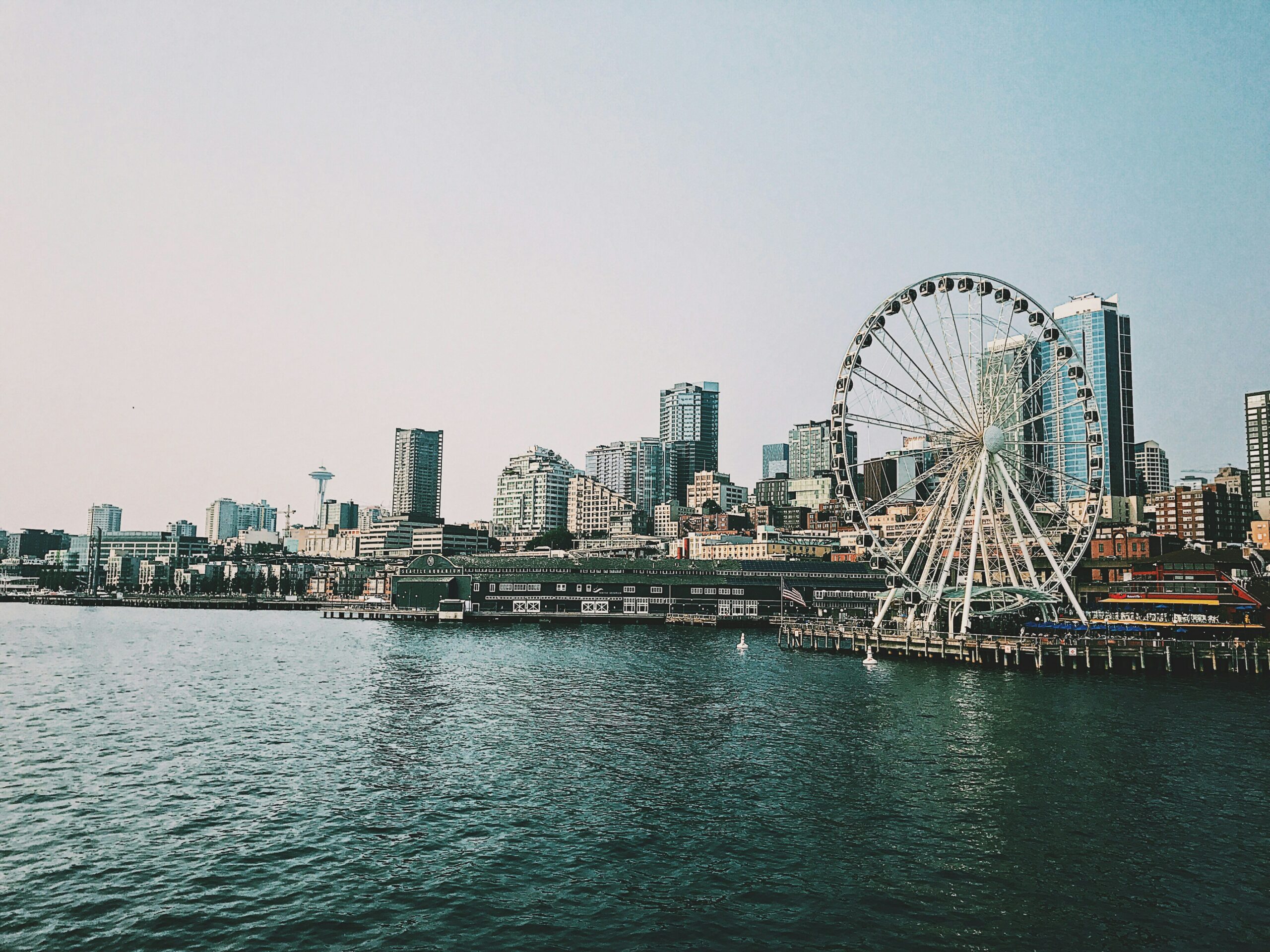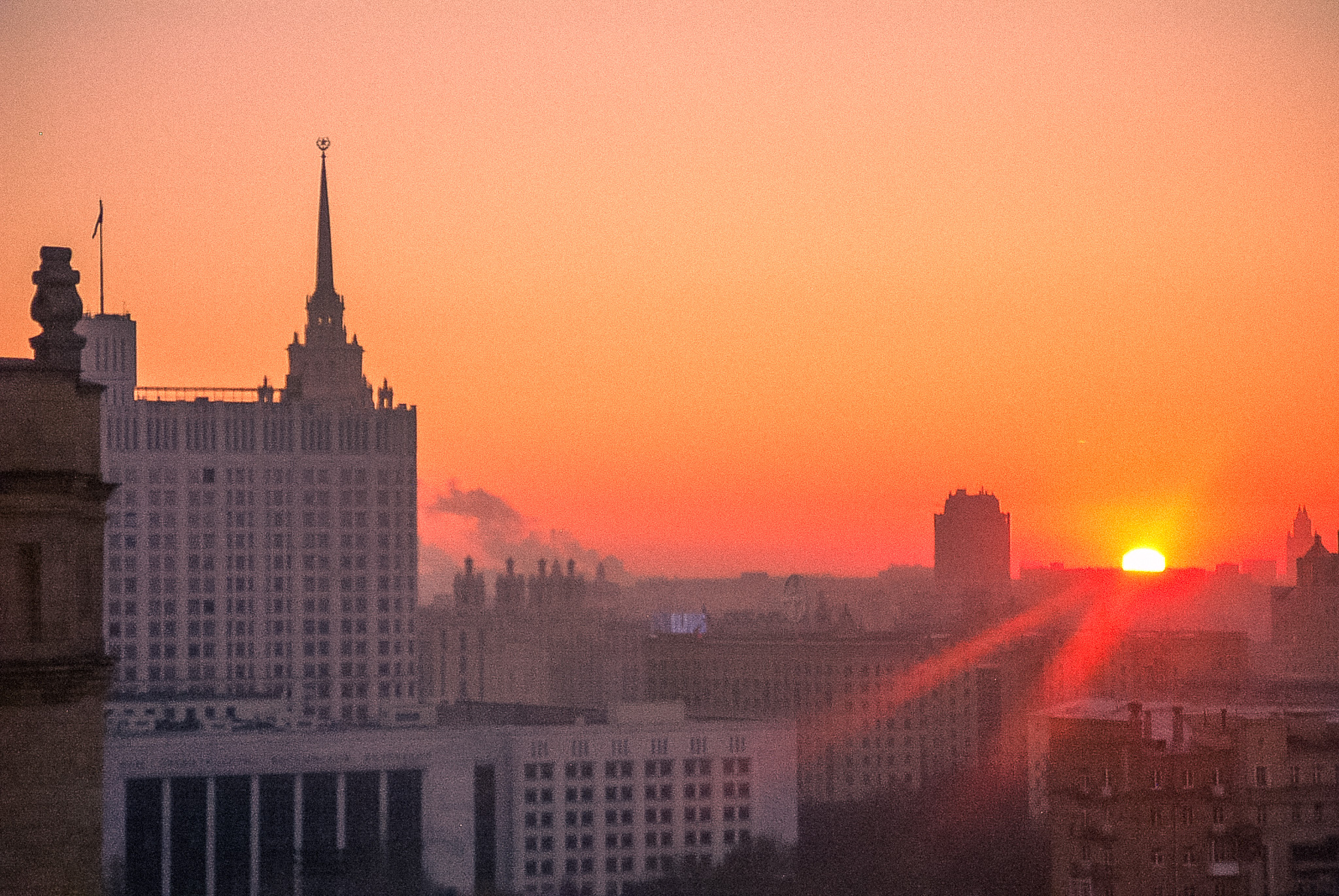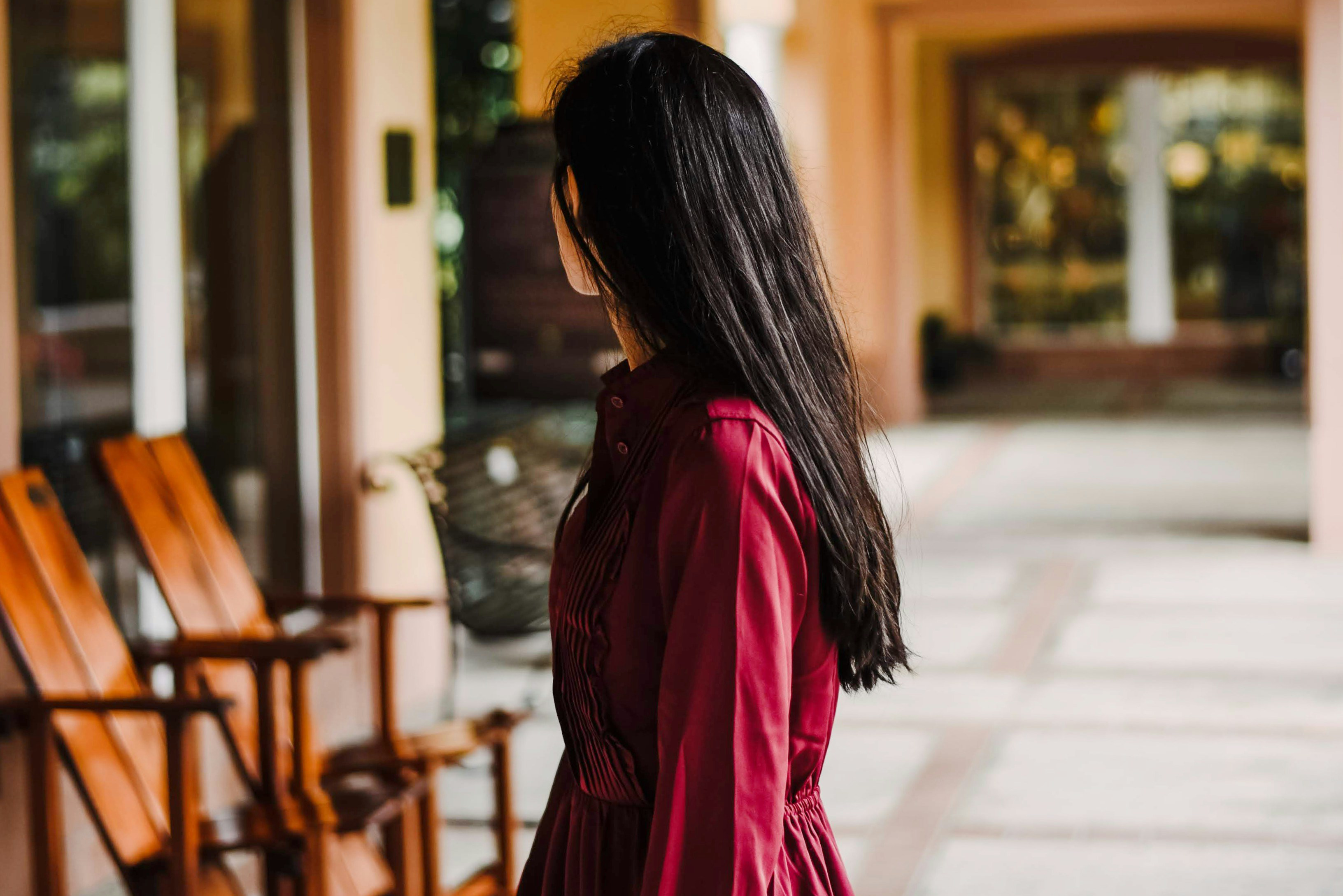No, my story has (almost) nothing to do with Starbucks, the Paramount Theater, the Space Needle, or Fremont. It’s about my attempt to extend my U.S. residence permit in 1999…
I was living in New York and, once again, facing a cash flow problem. I had just landed a freelance job at an ad agency. The place was great, the work was fun, but my three-month visa was running out, and I had to leave the country for at least a few days. My bank account was empty, and the agency wouldn’t pay me until the end of the month. It was June—peak travel season—and flights to Germany were expensive. The cheapest ticket was $600.
I had enough miles in my Skymiles account for a domestic flight within the U.S., but not for Europe. Maybe the Virgin Islands? They’re English-speaking, not too far away, and it was the rainy season there. No, not enough miles, flights too expensive, and hotels unaffordable even in the off-season. So maybe Mexico or Canada? Mexico seemed too dangerous. They’d probably scrutinize me at the border. So, Canada. Hmm, wasn’t there my brother’s girlfriend from Seattle, the one I met at his wedding? A quick call. All good—I could stay with her. So, I booked a flight, and off I went to Seattle.
Maggie, my brother’s girlfriend, was super nice and picked me up at the airport. She lived in Fremont with Irene. Maggie was more the sporty and elegant type. Irene, on the other hand, was a quintessential hippie woman, with a deeply spiritual vibe. Seattle, in general, seemed to be a very spiritual city. I don’t know why, but everywhere you looked, there were stores selling Tibetan trinkets, books on Buddhism, and so on. The people there were also very open. Everyone talks to everyone—not like in New York, where the best-case scenario is getting barked at (which, as a Bavarian, I actually like…).
After a day in Seattle, I had to make my way to Canada. I took a Greyhound bus to Vancouver, and two hours later, we arrived at the Canadian border control. The Canadian officer looked me over, thought for a moment, and let me through. But he didn’t remove the U.S. Visa Waiver card from my passport (which he was supposed to do). I asked him to, and he replied, “You’re coming back to the U.S., right?” “Yes,” I answered. “Well, then the U.S. officers will handle that when you return,” he said. I insisted, asking him again to remove it. No chance. Now I had a problem!
Another hour on the bus took us to Vancouver. The beauty of the passing mountains and forests was lost on me due to my visa worries. In Vancouver, I checked into a YMCA—a kind of youth hostel. They’re always affordable, centrally located, and usually decent (like a regular hotel with single and double rooms). I stayed for two days, and then I planned to take the train back to Seattle, but my anxiety was growing. I spent most of the day at an internet café, trying to find a solution. Damn. The law had changed. Trips to Canada no longer counted as leaving the U.S. for visa renewal purposes. My panic was mounting.
That evening, I met a friend I knew from snowboarding in Alaska. We skateboarded through Vancouver’s streets. Skating helped me clear my head. I fell a few times but didn’t care. It was just about disconnecting for a while.
The next day, I lay on the beach in the middle of the city and got a nasty sunburn. I figured the Vancouver sun wasn’t so harsh, but I was wrong. That evening, I met my friend again for more skating and later a barbecue with his friends. At least I was starting to make connections here, just in case I had to stay in Canada for a while. Thoughts swirled through my head: What about my new job? My belongings and my apartment in New York? My girlfriend? If I was denied entry back into the U.S., I might not be able to return for a long time—just when life was finally starting to feel manageable, and the struggle in New York was becoming bearable.
It was Wednesday, and I checked in for the afternoon train to Seattle. With a sinking feeling in my stomach, I approached passport control. What’s this? The Americans were conducting U.S. entry checks here in Vancouver? I wasn’t prepared for that. The U.S. border officer was a big African-American guy who looked like he could be a basketball player. His cube (the booth he sat in) seemed way too high, so I could barely see over the edge—or maybe I just felt that small in the moment. He looked down at me and said, “Well, what do we have here?” He saw my tourist visa, which had just expired this year after ten years. He saw numerous entry stamps from the past two years and the green Visa Waiver card still in my passport. Then he shook his head. “Do you have a ticket back to Germany?” he asked.
Sure, I’d brought one just in case, but it was (strategically) dated for late September—exactly when the next 90 days would expire. I was so naïve and stupid! He shook his head again and said, “Well, now you’ve got a problem!” Yeah, I’d known that for three days, I thought, as I started to panic internally. My mind raced—girlfriend, apartment, job… Stay calm, Chris. Stay calm!
They took me to a side room. My train wasn’t leaving for another hour and a half. Plenty of time, I thought. The officer called in two Canadians—both Indigenous men. They looked like they’d walked out of a Wild West movie, wearing uniforms that were hilariously too small for them. They discussed what to do with me. “Do you have any money?” one asked. “Nope, not a cent.” I told them a story: my rich girlfriend paid for everything in New York, and I was just visiting her. Why would I work or stay in Germany when she wanted me with her? My (then) girlfriend knew the story in case anyone from immigration ever called. She was Italian with poor English, so any official would quickly give up. The American said he couldn’t let me in. The Canadians said they didn’t want me either. They pointed out I had a flight booked from NYC to Munich in three months. They argued but came to no decision. The American left the room. Now I was his problem.
Caught trying to extend my U.S. residence permit with a trick. Stranded in Vancouver. So, what happened next?
The Canadians decided to kill some time by searching my belongings. They even made me strip down to my underwear, and one of them made fun of my tattoos. Then came the question: “You’re a skateboarder?” I had my board with me. “Yeah,” I said. “And snowboarder too.” – “They all do drugs!” the customs officer declared. “Could be,” I replied. They inspected all my belongings in excruciating detail.
“And you?” the other officer asked.
“Me?” I paused. What was I supposed to say?
They were putting a lot of pressure on me. If I had anything illegal, I should hand it over, they said. Pipes, papers, anything. Because if U.S. customs found it, I’d be heading straight to jail. “The Americans don’t mess around,” they added. “We’d just confiscate it and let you go.”
Wait a minute—did he just say “U.S. customs”? That meant entry! I suddenly had hope.
“Guys, do you think I’m stupid?” I said. “I’d come to Canada to extend my Visa Waiver (obviously), but then bring a bag of weed back into the U.S.? Really?” Even the dumbest Canadian customs officer could see the logic in that. They gave up and left the room.
I checked the time. Only 30 minutes left until my train departed—the last one of the day. I was already picturing myself spending the night in a Canadian detention cell. And then?
A little while later, the door opened, and the tall American officer walked back in. “So, you’re a stoner,” he said with a menacing poker face. Oh great, here we go, I thought. Apparently, he and the Canadians had been talking.
But by now, I felt surprisingly confident. What did I have to lose at this point?
“Yeah, I used to be,” I replied. “Smoked a lot, but I decided to quit.”
“Why?” he asked, a faint twitch at the corner of his mouth.
“Well, you get older. That stuff slows you down, and you stop getting things done,” I said.
Suddenly, a grin broke through his poker face. Odd. What was going on? The room fell silent for a moment. He seemed to be trying—and failing—to suppress his smile.
“Give me a good reason why you’re going back to Munich in September,” he said.
Sensing an opportunity, I let loose like a shaken soda bottle being opened. “My mom lives alone in a big house. There’s so much work to do there that she can’t handle it. Plus, she’s sick—heart problems. I also have a car, a fantastic Peugeot 306 Turbo Diesel. Want to see a picture? And a dog I love so much. Here’s a photo of my dog.”
I’m a terrible liar, but he seemed to buy it.
“Alright, alright,” he said. “Pack your stuff and come with me. The train’s waiting for you.” (We were already five minutes past departure time.)
We walked back to his booth. He stamped my passport and wished me a safe trip. “Back to Germany,” he added, still grinning.
“Yeah, thanks, and goodbye,” I muttered, dazed, as I sprinted toward the train.
Phew. I’d just barely dodged disaster, I thought as the conductor held the door open for me. “Well, troublemaker, hop on,” he said, laughing.
I collapsed into my seat. The train began to move south, and I still couldn’t believe I wasn’t in a jail cell. A stewardess came by, grinned, and said, “You look like you could use a cold beer.” She handed me one, and I gladly took it.
What had just happened? Was it the stubborn Canadians who didn’t want me? Especially not so close to the end of their shift? Or was it the stoner story? Maybe the American officer had once been a smoker himself. Or maybe he just liked me. Perhaps customs and border officers are human after all.
Outside, a stunning landscape rolled by. I soaked in the view and let my thoughts wander. I recommend this train ride to anyone (as long as you have the proper paperwork). Mountains, fjords, and so much to see. Your mind can roam freely while the scenery glides past. Add a few cold beers, and it’s bliss.
Three hours later, I arrived in Seattle. Maggie picked me up. “Your train was late!” she scolded.
“Yeah, I know. That was my fault. You wouldn’t believe what just happened…”
That evening, we sat in Maggie and Irene’s kitchen, eating fresh Alaskan salmon. Irene’s brother had caught it up north, packed it on ice, and flown it to Seattle.
“So, this is what real salmon tastes like,” I thought as I sipped my wine.
Irene and Maggie couldn’t believe my story. Neither could I. But I was back in Seattle, and in two days, I’d head back to New York—back to my girlfriend, our apartment, my cat “Pepe,” my new job, and my friends.
Until three months later, when I’d have to find a new solution. Then, with trembling knees. Even today, I still feel a bit nervous at U.S. border crossings, even though I haven’t lived there in years.
Photo by Felipe Galvan on Unsplash



